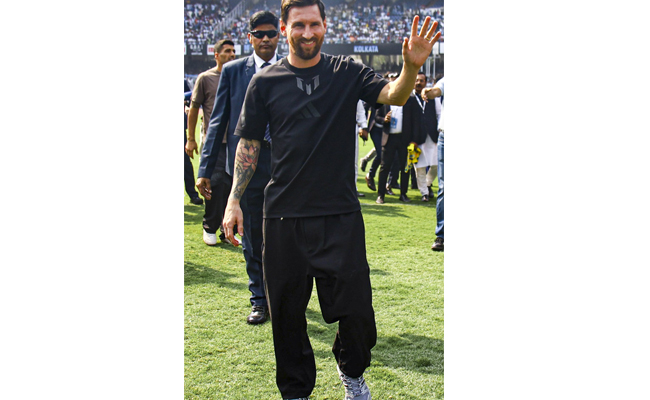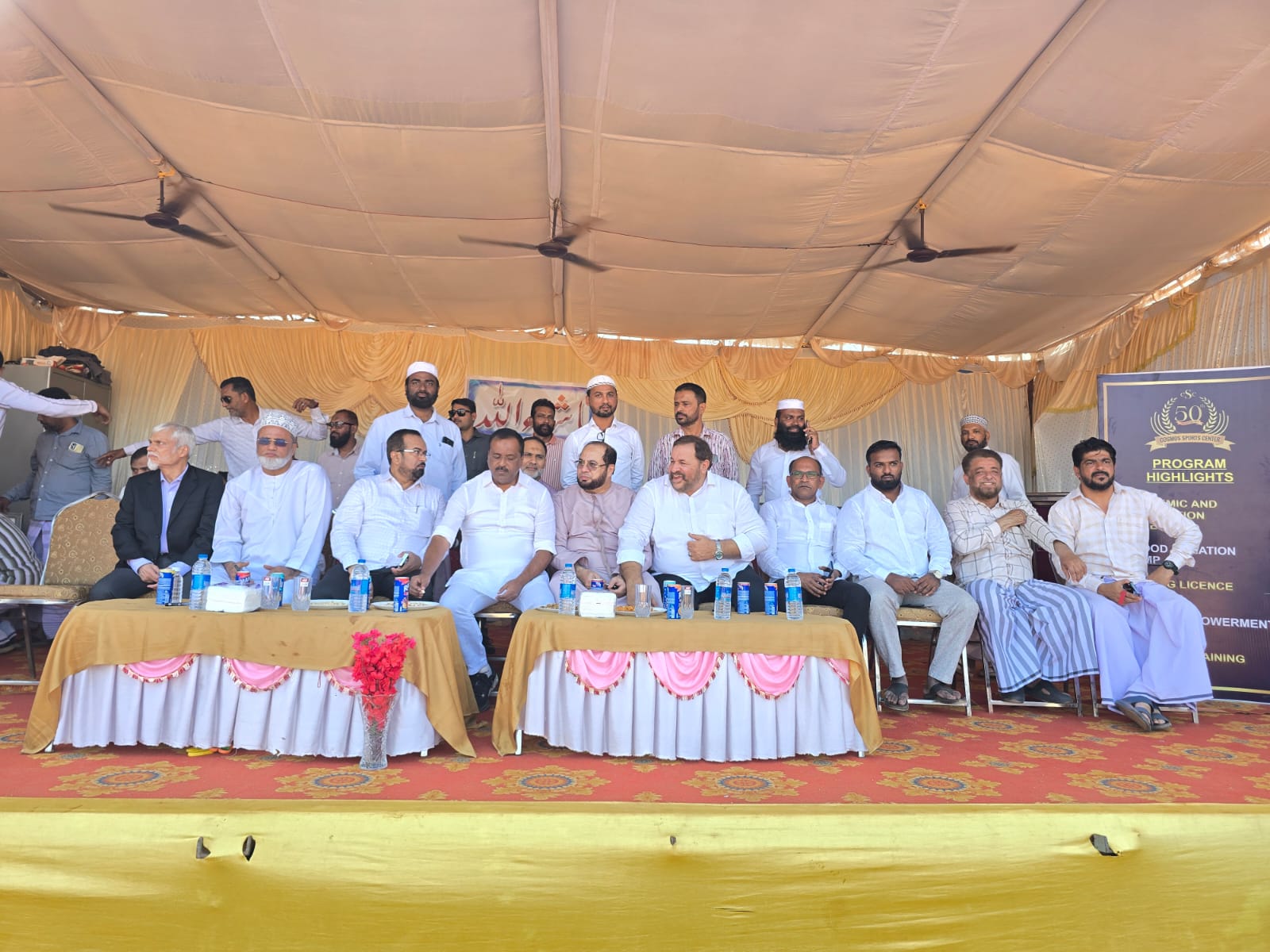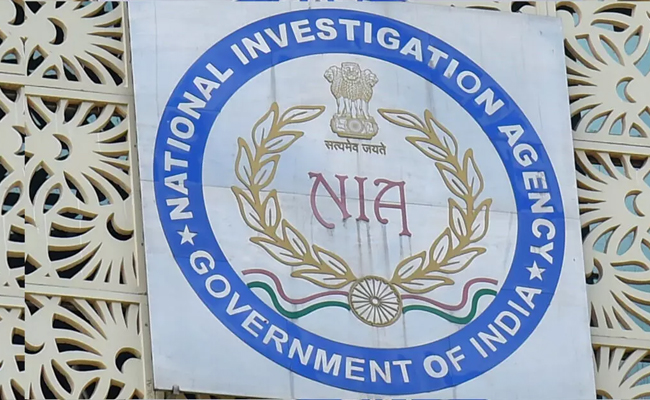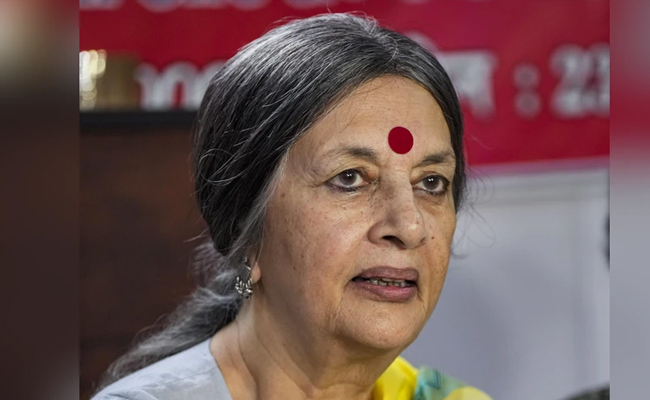Bath (UK)(PTI): (The Conversation): As the climate crisis gets ever more severe, the fossil fuel industry is struggling to recruit new talent. And now a number of existing employees are deciding to leave their jobs, some quietly, some very publicly, because of concerns over climate change.
In this episode of The Conversation Weekly podcast, we speak to a researcher about this phenomenon of "climate quitting".
My name is Caroline Dennett and this is my resignation.
In a video posted on LinkedIn in 2022, Caroline Dennett, a senior safety consultant working at a major oil company, announced she was terminating her contract because of what she called the company's "double-talk" on climate.
When Grace Augustine and her colleague Birth Soppe saw the video, which went viral, they decided to start looking for more people who had left their jobs because of concerns over climate change.
Augustine, an associate professor in business and society at the University of Bath in the UK, and Soppe, an associate professor of organisation studies, at the University of Innsbruck in Austria, have so far conducted interviews with 39 people from around the world in their ongoing research. Most, though not all, of their interviewees are young people who work in white collar jobs in the oil and gas sector.
One man they spoke to explained the feelings that led him to leave his job.
On a Friday afternoon travelling home, I would feel physically uncomfortable. And I was wondering: why am I feeling physically uncomfortable? I had a good week, I've done good work. And then you realise that, you may have done good work, but the goal that you're working towards is evil in a way; does not align with your moral compass.
Many referred to having a sense of cognitive dissonance the idea that your behaviour doesn't match your belief system. And they couldn't live it with any longer. Augustine explained:
They were increasingly feeling a sense of urgency around the climate crisis something that they'd thought might be happening ten, 15, 20 years down the line, such as heat records being broken or climate related weather events. They felt an increasing sense that it couldn't wait any longer for them to leave this industry.
Listen to Grace Augustine talk about her ongoing research on The Conversation Weekly podcast, which also features extracts from her interviews and an introduction from Sam Phelps, commissioning editor for international affairs at The Conversation in the UK.
A transcript of this episode will be available shortly.
Thanks to Grace Augustine for getting permission for The Conversation to use clips from her interviews, and to her interview subjects who agreed to let us use their voices and statements in this podcast.
This episode of The Conversation Weekly was written and produced by Katie Flood, with assistance from Mend Mariwany. Gemma Ware is the executive producer. Sound design was by Eloise Stevens, and our theme music is by Neeta Sarl. Stephen Khan is our global executive editor, Alice Mason runs our social media and Soraya Nandy does our transcripts.
Let the Truth be known. If you read VB and like VB, please be a VB Supporter and Help us deliver the Truth to one and all.
Mumbai (PTI): In view of Argentine superstar footballer Lionel Messi's visit to Mumbai on Sunday, the city police are implementing stringent security measures, like not allowing water bottles, metals, coins inside the stadiums and setting up watchtowers to keep an eye on the crowd, officials said.
The police also said taking extra care to avoid any stampede-like situation and to prevent recurrence of the chaotic situation that unfolded in Kolkata during Messi's visit on Saturday as thousands of fans protested inside the Salt Lake stadium here after failing to catch a clear glimpse of the football icon despite paying hefty sums for tickets.
Messi is expected to be present at the Cricket Club of India (Brabourne Stadium) in Mumbai on Sunday for a Padel GOAT Cup event followed by attending a celebrity football match. He is expected to proceed to the Wankhede Stadium for the GOAT India Tour main event around 5 pm.
"In view of Lionel Messi's visit to Mumbai, the police are geared up and have put in place a high level of security arrangements in and around the stadiums located in south Mumbai. Considering the chaos that prevailed in Kolkata and the security breach, we have deployed World Cup-level security arrangements at Brabourne and Wankhede stadiums," an official said.
Expecting heavy crowd near the stadiums during Messi's visit, the city police force has deployed more than 2,000 of its personnel near and around both the venues, he said.
As the Mumbai police have the experience of security 'bandobast' during the victory parade of ICC World Cup-winning Indian team and World Cup final match at the Wankhede Stadium, in which over one lakh cricket fans had gathered, we are prepared to handle a large crowd of fans, he said.
"We are trying to avoid the errors that occurred in the past," the official said.
There is no place to sneak inside the stadiums in Mumbai like the Kolkata stadium, according to him.
The police are also asking the organisers to provide all the required facilities to the fans inside the stadium, so that there will be no chaos, he said, adding the spectators have purchased tickets in the range of Rs 5,000 to 25,000. After paying so much of amount, any spectator expects proper services, while enjoying the event, he said.
The police are expecting 33,000 spectators at the Wankhede Stadium and over 4,000 at Brabourne Stadium. Besides this, more than 30,000 people are expected outside and around the stadiums just to have a glimpse of the football sensation, he said.
The organisers responsible for Messi's India visit recently came to Mumbai to discuss security arrangements. During the meeting, the Mumbai police asked them not to take the event lightly, according to the official.
After those requirements were fulfilled, the final security deployment was chalked out, he said.
Police has the standard procedure of the security arrangements inside the Wankhede Stadium, where people are barred from taking water bottles, metals objects, coins. Police are setting up watch towers near the stadiums and there will be traffic diversions, so that there is maximum space available to stand, according to the official.
Police are also appealing to the spectators to use public transport service for commuting and avoid personal vehicles to reach south Mumbai.
To avoid any stampede-like situation, police are also taking precautionary measures and will stop the fans some distance ahead of the stadium and public announcement systems will be used to guide the crowd. Barricades will be placed at various places to manage the crowd.
In case the crowd swells up beyond expectation, the police will divert people to other grounds and preparations in this regard underway, he said.
Additional police force has been deployed in south Mumbai to tackle any kind of situation, he said.





